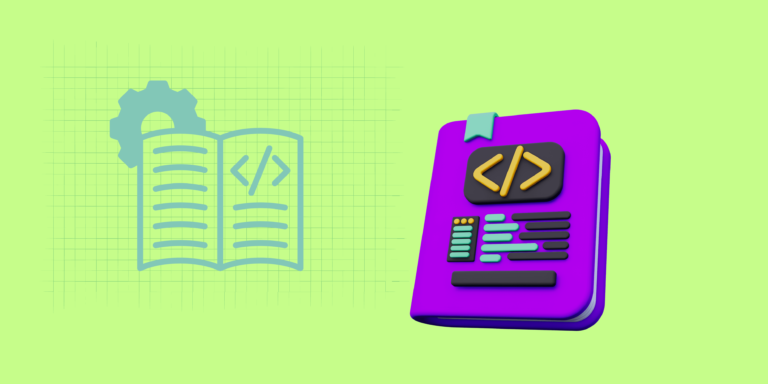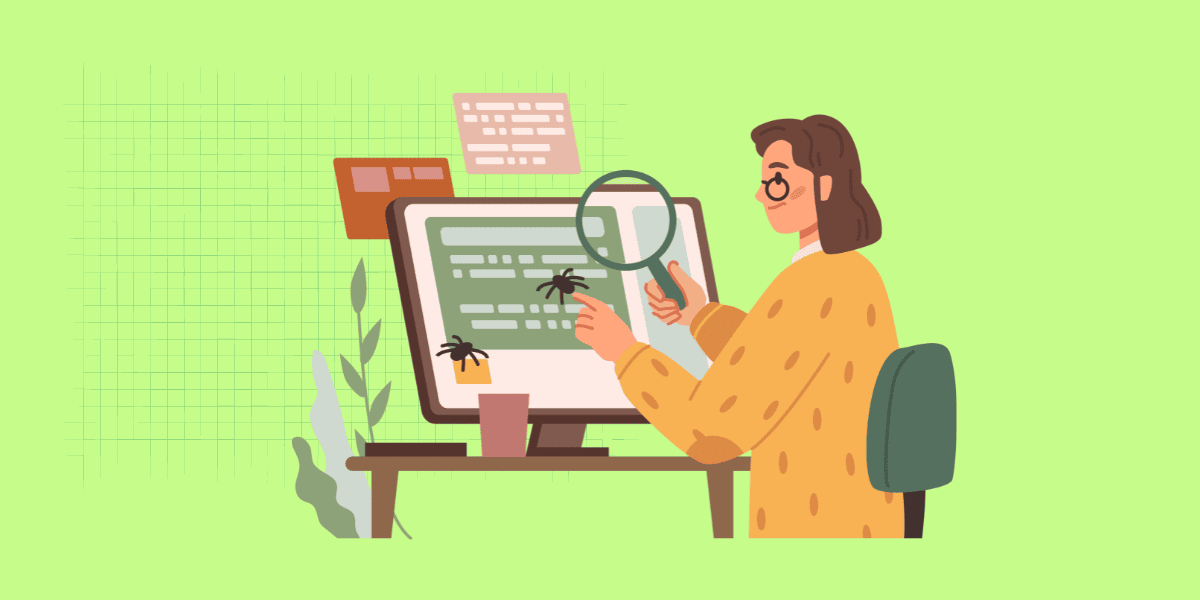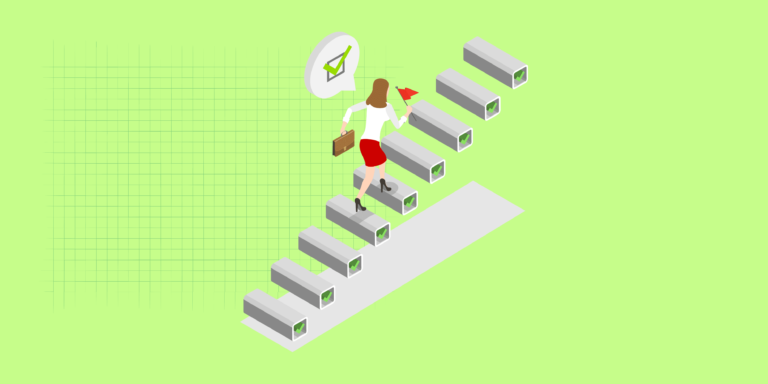
The primary role of a quality assurance tester is to ensure that the product meets established quality standards. A QA tester is responsible for the usability and safety of the program, website, or application, viewing the digital product from both user and programmer perspectives. To do this, the professional monitors the entire development lifecycle, from planning to post-release support.
Working in the IT field requires an understanding of the programming process, and for a tester, also various types of testing, including usability, performance, compatibility, security, functional, regression, modular, system, mobile, and database testing. Conducting cross-browser testing to assess system performance in all major browsers with different settings is important.
QA specialists must be prepared for multitasking. They evaluate the product at various stages of its creation, select optimal types and testing tools, document the verification process and generate reports, provide clear recommendations for improving software, and communicate extensively.
It is precisely this last feature of the profession that defines its uniqueness and complexity. To be a good quality tester, one must convey information to all project participants, understand the company's business processes, and the needs of the target audience.
Some companies seek QA testers with a bachelor's degree in computer science, mathematics, informatics, etc. Many job postings do not specify specific educational requirements or the presence of certifications. The main thing in this case is to possess a set of hard and soft skills.
What hard skills does a QA tester need?
Take a closer look at the key skills required for a QA tester. Let's start with hard skills directly related to testing tools and methods.
1. Understanding of the testing process and its various methodologies
The choice of testing method is based on allocated resources and also takes into account the specifics of the business and user expectations. This includes the ability to apply DevOps and Agile methods.
2. Mastery of testing software
Among the tools, Zoho, Bugzilla, Redmine, FogBugz, YouTrack, etc., stand out. You can use free applications or paid tools. Typically, the client or company that assigns testing of their product to specialists provides them with access to the necessary software. However, there may not be enough time for training. Employers prefer performers who are knowledgeable and have experience working with popular tools.
3. Ability to prepare testing plans
Planning is one of the defining stages of software testing. The plan covers the testing object, performers, and the main goals of the process. This includes a description of the testing methodology, a list of tools, bug tracking protocols, and testing levels. The tester provides information regarding risk reduction planning, evaluation criteria, and desired outcomes.
4. Ability to develop testing scenarios
Testing scenarios demonstrate the components of the product to be tested and the priority of tasks. A scenario description may look like this: «data security level of registered users».
5. Skills in creating test cases
A case is a step-by-step description of the testing process and its results. Information can be stored in spreadsheets or additional documents. The tester should specify identifiers for the scenario, test case, and detected defects, describe the test, list the tasks performed, provide data to the system, desired and actual results, and the operating system or browser.
6. Reporting on detected errors
The procedure for creating such reports includes defining the system location of the defect, severity level, brief description, etc. The speed of error correction depends on how consistent and accurate the data is enumerated. Therefore, the tester bears great responsibility for the speed of fixing all errors.
7. Testing automation
It is desirable to be able to conduct both manual tests and more efficient and faster automated testing processes.
8. Understanding programming languages
Basic coding knowledge is required for a deeper understanding of the product and effective communication with IT specialists, knowledge of Java, HTML, Python, JavaScript, and other popular programming languages.
Overall, a software tester should have a good understanding of the full product lifecycle being tested. The specialist should be familiar with the product's features and development budget, its potential users, the company's business processes, and project goals. Only such familiarity will allow them to propose and implement effective solutions to eliminate errors and improve the product before its market release.
For example, if a tester understands that for lead generation, a company needs maximum brand awareness, they will pay special attention to features that allow sharing links to the site, recommending the application to friends, etc. This could be cashback for inviting a certain number of people to online banking or another useful feature in a specific situation.

What soft skills does a QA tester need?
Soft skills are more universal. They are fundamental for all professionals working and planning to develop in areas related to programming, marketing, advertising, basically everywhere where interaction with other team members is required.
1. Analytical and logical thinking
Testing software, applications, websites, and online services requires professionals to analyze and draw conclusions. They make forecasts based on product monitoring results and identify options for improvement.
2. Communication skills
The ability to work in a team, explain the information obtained during testing in plain language, formulate technical tasks — all of this is very important for successful QA tester work.
3. Willingness to learn
Even if you already have a degree in IT or a relevant certificate, you will need to learn regularly. Some companies offer training and educational programs, while others look for professionals inclined to self-improvement and self-education.
4. Project management
Knowledge of project management tools, resource planning skills, and breaking down large tasks into subtasks are useful.
5. Learning about modern technological trends
To stay informed about industry changes, you need to follow programming and QA experts, attend thematic events online and offline, read professional blogs, and monitor tool video reviews. Knowledge of current trends allows you to perform various tasks faster and better.
6. Creative problem solving
Although testers create testing plans in advance, products often behave unexpectedly under increased load or during other tests. A QA tester should change strategy considering identified bugs and come up with non-standard solutions to various problems.
7. Stress tolerance
This skill is related to the previous one because often things don't go as planned, and testing doesn't yield the expected results. It is necessary to repeat the procedure, make changes to documents, apply other testing methods and tools. All this takes a lot of time and nerves, so emotional stability is essential here.
8. Time management
Usually, a QA tester has clear task deadlines. The punctuality and responsibility of the tester determine how timely the company can release the product and make a profit.
The profession of a QA tester is promising and prestigious. There are many areas in which software quality testers can develop, gaining an advantage over competitors. Automation testing is primarily one of them.
Testing in specific industries should also be highlighted. Narrow specialization, such as testing in finance or computer games, increases the attractiveness of a candidate to a potential employer. This can be compared with narrow specialization and, accordingly, a narrower target audience in marketing, medicine, or any other niche related to service provision. Familiarity with CI/CD tools and the ability to use artificial intelligence and machine learning in testing will be an advantage for a QA tester.
What skills do you need to be a QA tester?
For a QA tester, technical skills are important: understanding the testing process and its various types, documentation creation, report writing, test automation, understanding DevOps and Agile methods, basic programming knowledge, proficiency in using tools for automating product checks and error tracking. Among personal skills, project management ability, analytical and logical thinking, communication skills, time management, effective problem-solving, etc. are worth mentioning.
What is the most important skill for a QA to have?
In addition to experience and knowledge in testing and programming, a QA tester must be adaptable and open to innovation. Different approaches to testing vary from case to case, and technologies in this area are developing rapidly. Therefore, it is important to be aware of and respond to market and user requirements.


